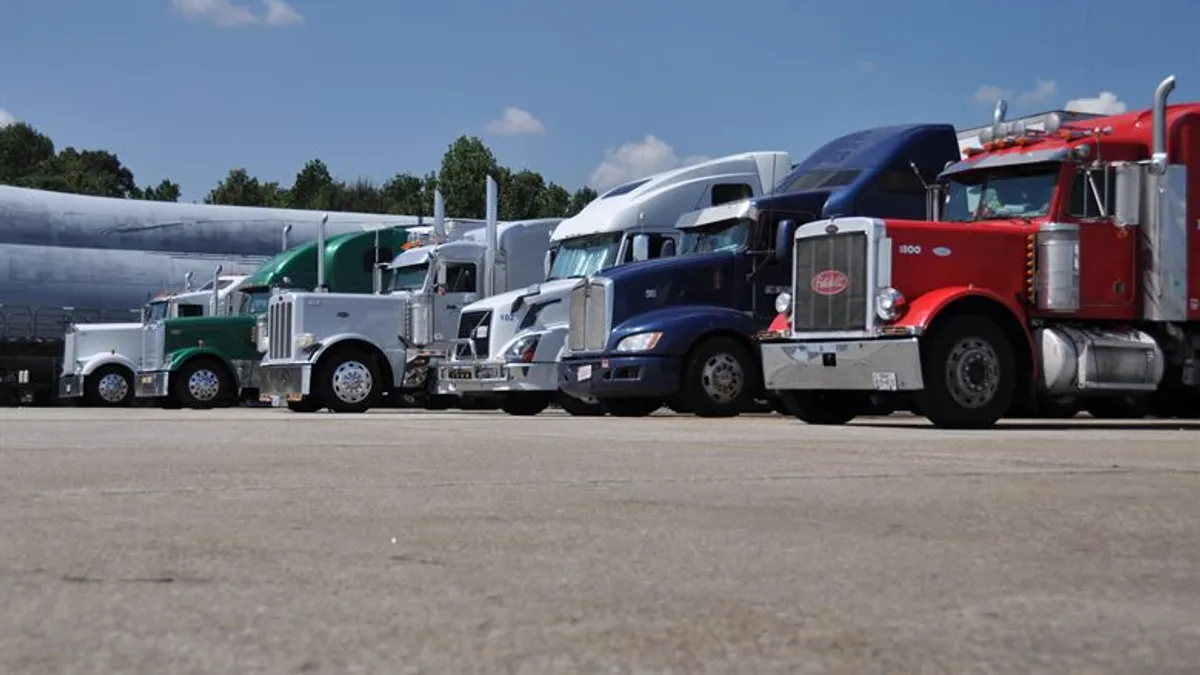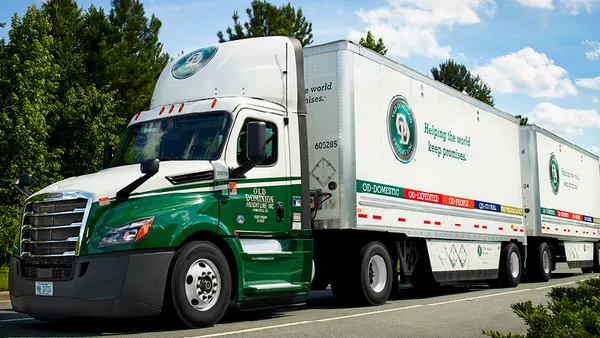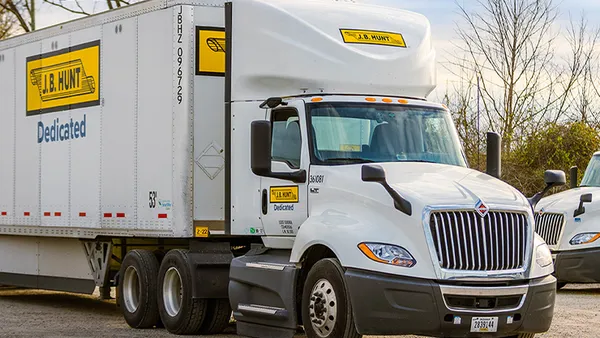Dive Brief:
- Groendyke Transport violated federal law when it "applied its inflexible leave policy" to fire two employees with disabilities who had exhausted their medical leave, the U.S. Equal Employment Opportunity Commission alleged in a lawsuit.
- The EEOC says one of the company's employees, a Florida-based mechanic, needed additional leave beyond the 12 weeks allowed under the Family and Medical Leave Act (FMLA) to take care of a staph infection that required surgery. Another employee, a Houston-based truck driver, required additional leave because of complications from pneumonia. The workers were at home recovering when they received word they had been fired, according to the federal agency. Both employees required "just a few more weeks of leave," EEOC said.
- The alleged conduct violates the Americans with Disabilities Act (ADA), which protects employees from discrimination based on their abilities when they can perform the essential functions of their job with a reasonable accommodation, such as additional medical leave, EEOC said in court papers. The EEOC has asked for back pay, compensatory and punitive damages and injunctive relief.
Dive Insight:
The conflict between carriers and their drivers is nothing new, but it usually revolves around the classification of drivers. Drivers will often claim they have been improperly classified as a contractor rather than an employee.
XPO recently agreed to a $16.5 million settlement after 847 plaintiffs accused the company of improperly classifying workers as contractors rather than full-time employees. This allowed the company to disregard obligations like paying the minimum wage, paying for overtime, compensating expenses related to employment and providing meal breaks, according to the original complaint. This settlement is scheduled to have a hearing in October where it could be given final approval.
Another of the nation's largest trucking companies, NFI, has been accused by drivers and union members of similar actions. Lowe's contracts with NFI to haul some of its freight and union members called on the retailer earlier this year to cut ties with the carrier over these concerns. NFI denies this allegation.
These concerns around leave policies with Groendyke Transport highlight that the labor concerns within trucking don't begin and end with driver misclassification.
There has been a lot of discussion about a driver shortage in the trucking industry over the last couple of years. This demand for drivers could be giving labor more confidence to seek out better treatment from their employers.
Employers have to modify policies that limit the amount of leave employees can take when a worker needs additional leave as a reasonable accommodation, the EEOC says in the Employer-Provided Leave and the Americans with Disabilities Act. An employer is obligated to consider providing unpaid leave to a worker with a disability as a reasonable accommodation if the employee requires it, just as long as it does not create an undue hardship for the employer. This holds even when the worker has exhausted his or her leave, including leave taken under a workers' compensation program, the FMLA or leave provided by similar state and local laws, EEOC said.
However, the agency has noted that reasonable accommodation does not require an employer to provide additional paid leave beyond what it already provides as part of its paid leave policy.














